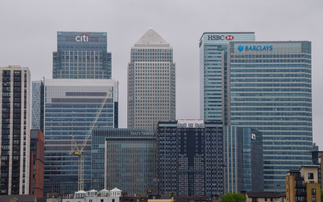More than half of pension scheme's overall portfolio will be within 'climate aware' strategies from February 2021
Workplace pension scheme Nest has unveiled plans to ramp up its investment in energy efficiency upgrades, renewables, and green buildings in a bid to slash the carbon footprint of its portfolio and take advantage of "exciting" growth areas in emerging markets, it announced yesterday.
Kicking off the latest stage of its 2050 net zero strategy, Nest said it planned to almost double its investment in emerging market equities from around £480m to an estimated £930m by February next year, while reducing investments in fossil fuels and carbon-intensive firms.
The move would grow the proportion of its total portfolio invested in emerging markets from 3.6 per cent to six per cent, it said, noting that such markets were set to continue outpacing growth in developed markets "driven by younger populations and a rising middle class".
The move will also take Nest's investments in dedicated "climate-aware" strategies to almost £8bn from February 2021, which would represent over half - 51 per cent - of the pension scheme's overall portfolio, up from around 45 per cent at present.
Nest's head of responsible investment, Diandra Soobiah, argued increasing investments in developing and green markets would help keep the pension scheme ahead of growing demand for sustainable investments and reduce climate risk across its portfolio.
"Over the next 10 to 20 years countries like China and India are expected to see huge increases in urbanisation," she explained. "Many emerging economies are also thinking hard about how to harness green technology to fuel their growth and leapfrog the dirtier industrialisation trends of the past. This presents opportunities for investors."
Soobiah said it was therefore "crucial" for investors to be active stewards for companies in emerging markets. "We'll encourage companies to prepare for the low carbon transition to ensure they remain attractive investments for our members," she said.
Working with Northern Trust Asset Management, the firm plans to tilt investment in companies based on a score calculated on energy efficiency, alternative energy, and green building, while reducing investment in companies with large oil or gas reserves, and those with high carbon intensity.
The £12bn master trust workplace pension scheme, which represents more than a quarter of the UK workforce, said it would also continue to review and update the methodology behind the fund "evolving the criteria over time so that it continues to move closer to the goals of the Paris Agreement".
Nest became one of the UK's first pension schemes to set a target to deliver net zero emissions across its portfolio earlier this year, in a move it estimated would have a similar climate impact to taking 200,000 cars off the road. It also pledged to divest fully from companies involved in thermal coal, oil sands, and Arctic drilling by 2025 unless they set out plans to phase out all related activity by 2030, by which point the pension scheme is aiming to halve emissions across its portfolio.
Marie Dzanis, head of Northern Trust Asset Management for the EMEA region, welcomed the opportunity to work with Nest in supporting more sustainable investment practices.
"We at Northern Trust Asset Management believe this will be a decade of sustainable investing," she said. "We are delighted to work with Nest, who dedicate nearly half their portfolio to climate-aware strategies, and celebrate that they are at the forefront of innovation. Our work with Nest aligns to our philosophy and dedication to furthering investor access to climate-aware strategies."









